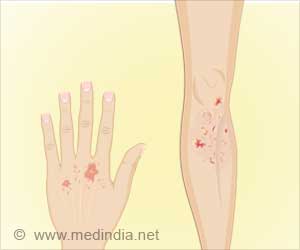A new study by researchers from the University of Queens land in Brisbane suggests that children who don't get enough of sleep are more likely to become obese when they grow up.
Parents need to make sure that their kids get a good night's sleep, for a new study by researchers from the University of Queens land in Brisbane suggests that children who don't get enough of sleep are more likely to become obese when they grow up.
The scientists have found that lack of sleep prevented the body from producing sufficient quantities of a hormone that repressed appetite.Dr Abdullah Al Mamun, of the University of Queens land in Brisbane, based the finding on the results of a study that involved 2,500 children from birth to the age of 21.
The study revealed that poor quality of sleep at a very young age was a significant risk factor for obesity in early adulthood, regardless of kids' lifestyle. Only 13 per cent who slept irregularly around the age of two and four were found to be obese in later life.
This percent rose to 23 among those who often faced sleeping problems.
Australian experts revealed that those children who had problems sleeping were almost twice as likely to be obese young adults as those who had little trouble.
Dr Mamun's research claims that lack of rest implied that the body secreted less of the leptin, an appetite suppressant and increased the levels of appetite stimulant, ghrelin. Also, too little sleep can disrupt the metabolism and change the body's reaction to insulin, a hormone related to the speed at which the body puts on fat.
Advertisement
"First, children who sleep less have more time in which to eat. Second, lack of sleep results in tiredness and less physical activity during the day, causing less energy expenditure than energy intake. Or less physical activity may result in reduced sleep quality or duration," the Daily Mail quoted him, as saying.
Advertisement
Source-ANI
SRM /J







